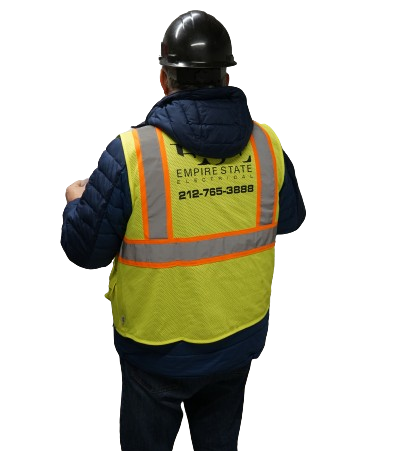
New York City’s electrical codes are a set of regulations designed to ensure the safety, reliability, and efficiency of electrical systems throughout the city. These codes are essential for protecting both the public and property, and they provide a framework for the installation, maintenance, and inspection of electrical systems. The NYC Electrical Code is an adaptation of the National Electrical Code (NEC), with additional requirements specific to the city’s unique needs and challenges.
Historical Background
The NYC Electrical Code has evolved over the years to address the increasing complexity of electrical systems and the growing demand for electricity. The first set of electrical codes in New York City was introduced in the early 20th century. Since then, the codes have undergone numerous revisions to incorporate advancements in technology and address new safety concerns. The latest version of the NYC Electrical Code, based on the 2020 NEC, was adopted to keep up with modern electrical standards and practices.
Key Components of the NYC Electrical Code
- Safety Standards: Safety is the primary focus of the NYC Electrical Code. It outlines detailed requirements for electrical installations to prevent fires, electrical shocks, and other hazards. This includes guidelines on proper grounding, circuit protection, and the use of appropriate materials.
- Permits and Inspections: Before any significant electrical work can begin, contractors must obtain the necessary permits from the NYC Department of Buildings (DOB). Additionally, all electrical installations must be inspected by a licensed electrical inspector to ensure compliance with the code.
- Licensing Requirements: Only licensed electricians are authorized to perform electrical work in NYC. The licensing process involves rigorous testing and verification of an individual’s knowledge and experience. This ensures that all electrical work is performed by qualified professionals.
- Energy Efficiency: The NYC Electrical Code includes provisions aimed at improving energy efficiency in buildings. This involves the use of energy-efficient lighting, appliances, and systems, as well as the implementation of energy management practices.
- Emergency Systems: The code mandates the installation of emergency power systems in certain types of buildings, such as hospitals and high-rise residential buildings. These systems ensure that critical functions can continue during power outages.
- Special Requirements for High-Rise Buildings: Given the prevalence of high-rise buildings in NYC, the electrical code includes specific requirements for these structures. This includes regulations on vertical wiring systems, emergency lighting, and fire alarm systems.
Compliance and Enforcement
Compliance with the NYC Electrical Code is mandatory for all new construction, renovations, and electrical maintenance work. The NYC Department of Buildings (DOB) is responsible for enforcing the code. Violations can result in fines, work stoppages, and even legal action. To avoid these consequences, property owners and contractors must ensure that all electrical work complies with the code.
Recent Updates and Future Trends
The NYC Electrical Code is periodically updated to reflect changes in technology and industry practices. Recent updates have focused on integrating renewable energy sources, such as solar power, and accommodating new technologies like electric vehicle charging stations. Looking forward, future revisions of the code are expected to continue emphasizing sustainability, resilience, and the integration of smart technologies.
Conclusion
The NYC Electrical Code is a comprehensive set of regulations designed to ensure the safety and efficiency of electrical systems in one of the most densely populated cities in the world. By adhering to these codes, electricians, contractors, and property owners play a crucial role in maintaining the safety and reliability of NYC’s electrical infrastructure. Whether you are planning a new construction project or maintaining an existing building, understanding and complying with the NYC Electrical Code is essential for success.


